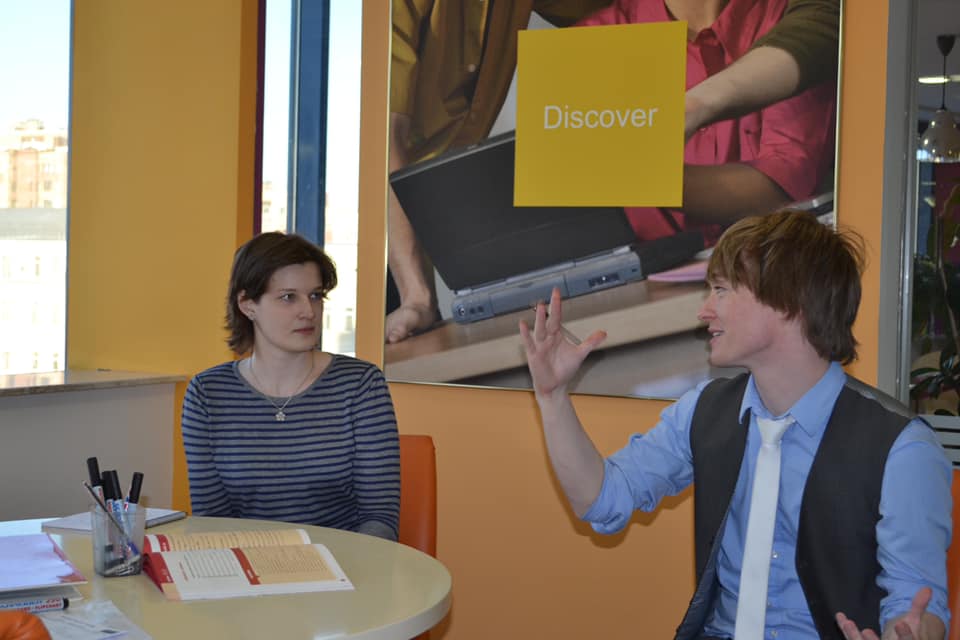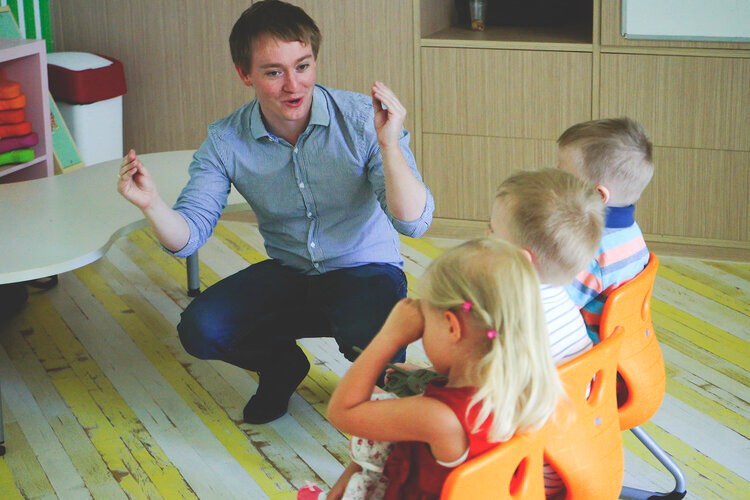7 Lessons about Language Learning from 6 Years Teaching English
There are days in your life that change you forever. Mine was the day I swapped life in a leafy corner of southern England for a year teaching English in the bustling city of Moscow.
I thought the move would give me a chance to improve my Russian and get a break from the 9-5 lifestyle.
I ended up learning so much more and got so enamoured with my new vocation that one year quickly became six.
I Learned So Much from Teaching Others
It was fascinating to coach the same groups of adults over time, following their language learning journey from day one to a point where they felt they had achieved their respective goals, which is essentially what I ended up doing for most of my time in Russia, including a bonus year spent teaching kindergarten (which was also enlightening on the learning front, but from a very different angle).
Language learners are able to draw inspiration from their favourite YouTube polyglots, Facebook friends, or perhaps classmates if following a structured in-person course.
All of these offer the chance to swap tips with others, and seeing my students succeed in the challenge of language learning really got me thinking about which approaches to language study work the best.

Lesson 1: The (Boring!) “Secret” of My Best Language Students
One of the most privileged parts of teaching a language is seeing your students get results, and some of my students really knocked it out of the park.
I remember one student coming in at beginner level only to get hired by the company I worked for as a teacher the next year, and another who managed to amass what I saw as being a fairly close-to-native vocabulary after around two years of study.
There were also hundreds of students who didn’t really improve a lot, so what made the difference? It might seem obvious, but those two I mentioned above gave it their all. They just had a hunger to learn. They attended as many classes as they could, did their homework, and even waited around for the teachers at the end of the night so they could get an extra ten minutes of conversation in on the metro home.
There were others that didn’t get the star-studded results above but still improved their English enough to get the promotion they wanted at work or be able to converse with locals while travelling.
Their secret? They kept to a regular schedule.
You’d be surprised where ten hours a month of study time can get you if you keep it up over three years, and the takeaway for language learners is that having an achievable but long term study pattern you manage to stick to might serve you better than trying to learn 1000 kanji in a month or going without sleep to try to make it to the top of the Memrise leaderboards.
Lesson 2: Students Who Would “Speak from Day One” Got the Best Results
Teaching gave me the opportunity to view Benny’s “Speak from Day One” mentality in action.
The school that I worked for tried as much as possible to enforce an “English only” policy, even with students that were total beginners.
Those just starting out in English soon divided themselves into two categories when asked welcomingly in English when they’d like to book their next lesson – those who were ready to interact with receptionist using the few words they’d learnt in their first hour of English, even if just answering with a simple ‘yes’ or ‘no’, and those that would just refuse and revert back to their native language. Guess which group generally got the best long term results?
It was those learners who tried in English of course, but why does speaking from day one work so well? The answer to that is in the next lesson…
Lesson 3: Fear of Mistakes is Crippling for Language Learners
I think the answer lies in overcoming anxiety. Fear of making a mistake might be one of the most crippling fears for aspiring linguists, as it hinders the most important function of language – communication.
I was always impressed by students that found creative solutions to gaps in their knowledge, getting stuck for a word mid-sentence and communicating the word they were looking for by miming or drawing.
Lesson 4: Stop Speaking Your Mother Tongue
Making a resolution to not use your mother tongue in learning (as in James’s month without English) is a terrifying prospect, but my observation in the classroom is that it can only make you flourish.
It forces you to devise your own coping strategies, which start as pointing and botched explanations but lead to deep immersion in the language, rather than learning theory and then worrying about whether you’re doing it right.
One shining example of this is going abroad alone. When you’re buying a train ticket in a foreign language, there’s no time to check your grammar or pronunciation, your priority is getting the job done.
Going abroad means facing hundreds of live conversational situations where your focus is survival rather than linguistic accuracy. It also does wonders for your confidence, and I’d often meet loud versions of formerly introverted students proudly declaring that they’d spent the summer in Malta or London immersed in English.
Lesson 5: Watch How Children Succeed at Languages
Children know nothing about the so-called “language barrier”.
Put a group of kids that don’t speak the same language in a room and you’ll soon wonder what happened to that infamous language barrier. Granted, communication might not take the same form, but you’ll soon notice that they don’t really have the same hangups you and I might experience if we were dropped into the centre of Tokyo for the afternoon with no means of communication.
It’s almost as if young children don’t really notice that another language is present – they just get on with interacting as usual and start slowly assimilating the second language into their own speech.
While it’s true that the brain plasticity of children in relation to language acquisition is both something that linguists don’t yet fully understand and a superpower that we as adults have long since had fade, there’s still a lot that can be borrowed from children’s approach to language learning.
To learn a language as kids do, don’t avoid interaction. Don’t get embarrassed about your accent or about your potential failure to get your message across.
Know that each period of time spent in the company of those that speak your language of study is an experience that will get you closer to your goal.

Lesson 6: Find an Approach that Works for You
I had a private student who would print out the lyrics from her favourite songs and bring them to class, and we’d usually end up using most of the lesson time dissecting Eminem verses rather than polishing grammar.
I realised a few lessons in that this approach really worked for the simple reason that the student’s engagement levels were sky-high. She just wanted to unlock the meaning of songs that she’d been a fan of for years, and that intrigue was enough to keep her focus razor-sharp lesson after lesson.
That’s why tricking your brain into learning by watching Netflix in Spanish or reading news in the language you’re studying is such a good ruse, as your chances of distraction and discouragement are overridden by your enjoyment of the task.
It’s true that sometimes you need to crunch verbs or work on your Czech case endings, but peppering your language routine with activities you really enjoy can save you from boredom and giving up altogether, so make sure you’re taking care of your motivation by leveraging hobbies and success won’t be far behind.
Lesson 7: Community Will Get You a Long Way
There was one more success factor that I really saw come into play while working in a language school, which was the simple power of community.
Those students who built friendships with others really seemed to have an advantage. They were less likely to skip lessons and seemed to invest more time in the learning process.
The power of community is probably linked to the previous point on tricking your brain by doing something you enjoy – for these students going to lessons or dropping in to finish homework was also an excuse to see friends and to socialise.
Maybe for you it’s just a case of finding a language meetup in your area, getting more involved in an online community for your language or starting a language exchange.
What’s Your Takeaway?
So what can you take away from this article to supercharge your language learning efforts?
Develop a hunger to learn your language of choice, swap perfection for interaction, don’t be afraid to speak, find language activities that match your hobbies and harness the power of community.



Social